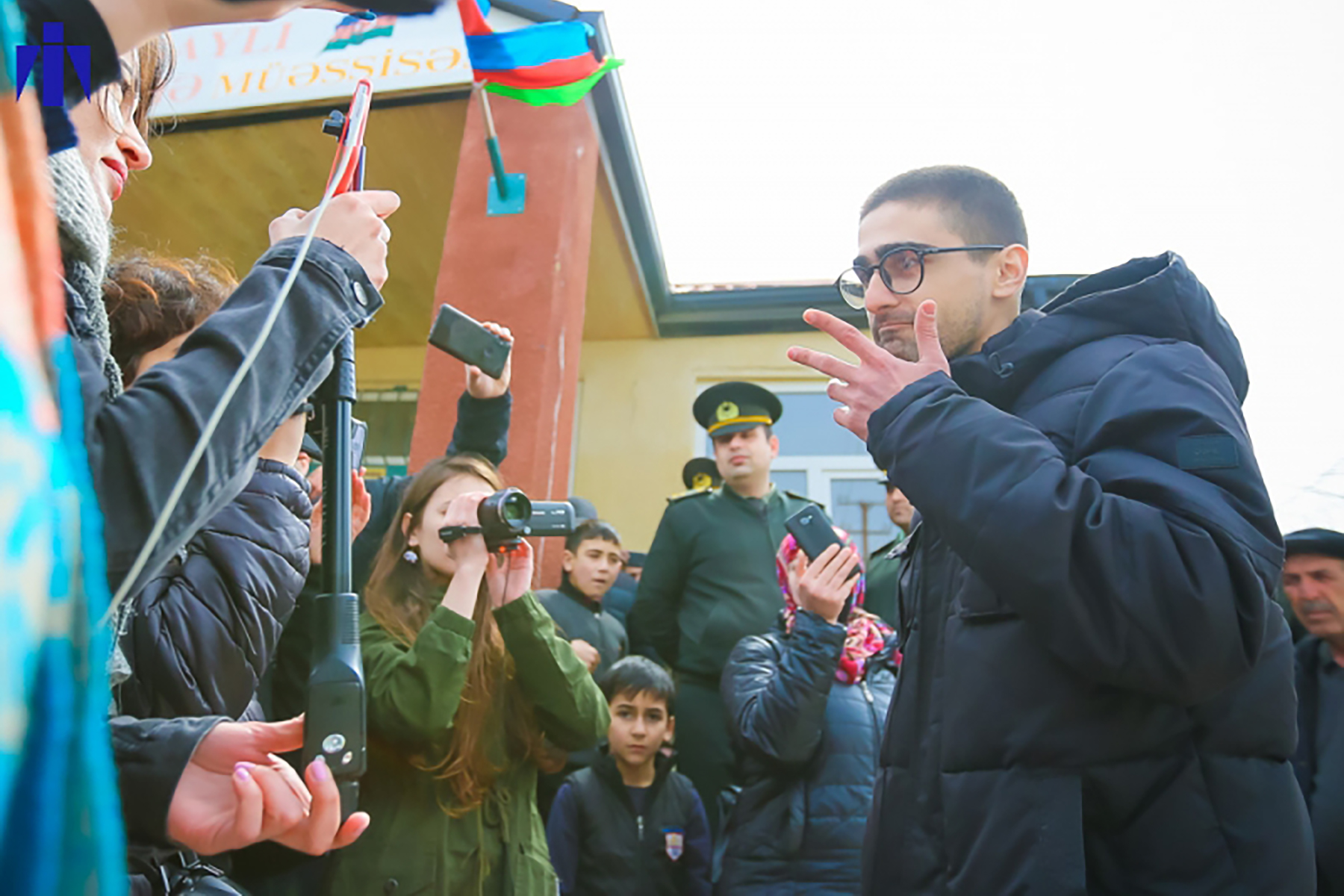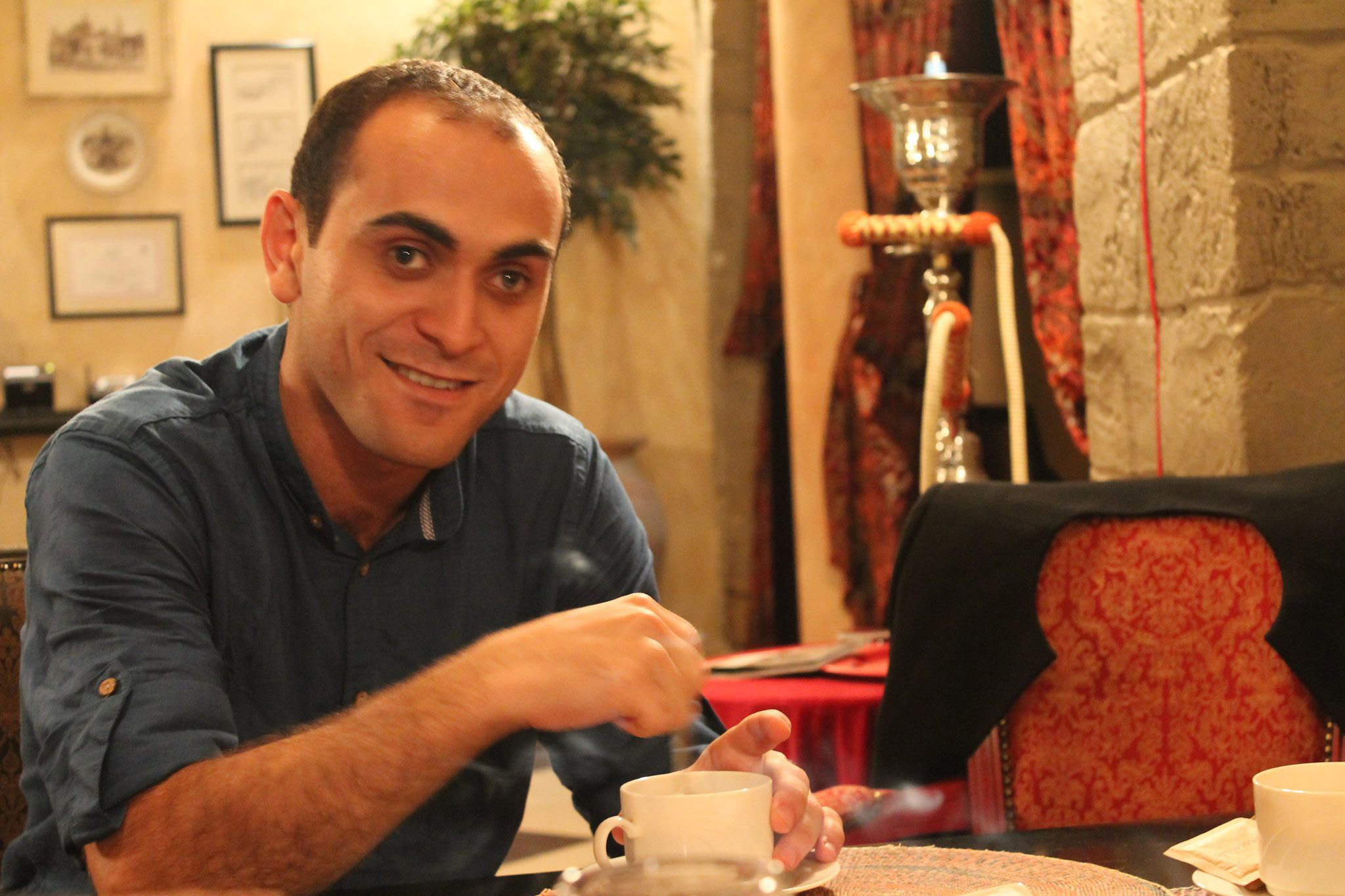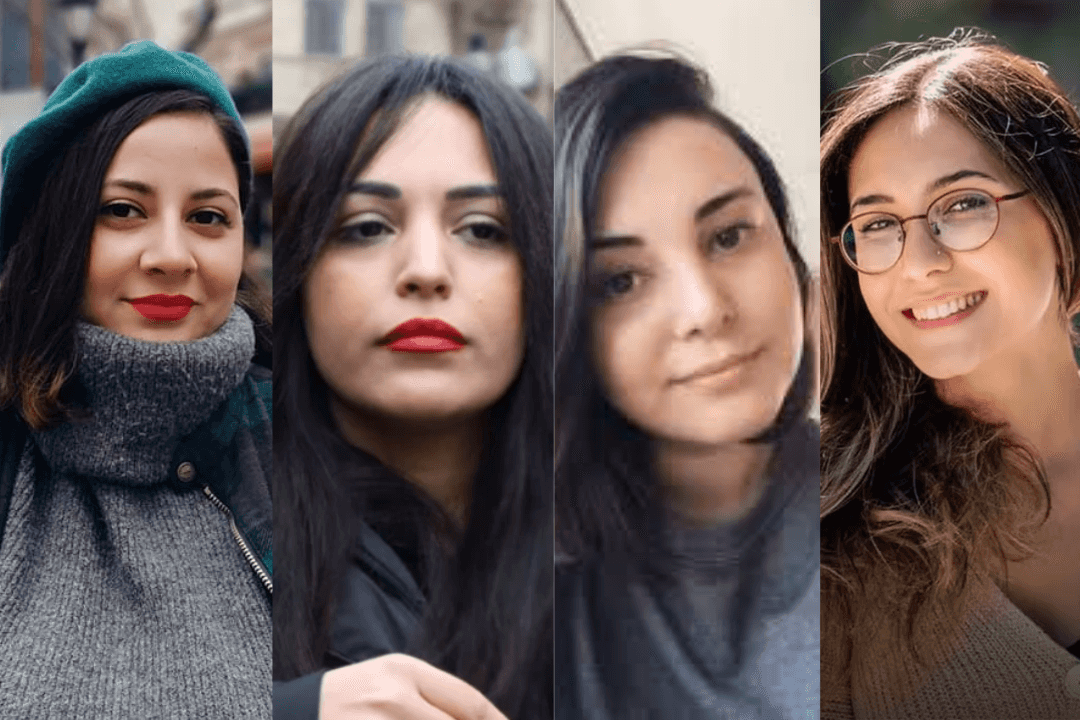
An anti-war activist has claimed that the Azerbaijani security services threatened to kill him and his family over his online activities.
Latif Mammadov, 24, told OC Media he was called in for questioning on Sunday, before being interrogated for two hours. He said officers physically abused him and threatened him.
‘One of them asked me a question and when he didn’t like my answer he grabbed me by the collar and just started shaking me vigorously, I pushed him on his shoulder so he let me go, but then his colleague got up and they pushed me down on the chair’, Mammadov said.
‘They said they will kill me and my parents if I don’t stop [my online activity] and asked me to let everyone else know this. They thought I was very young and new to activism and probably wanted to make me give it up.’
The State Security Office of Azerbaijan has received numerous public complaints online in regards to social media posts containing anti-war sentiments and opinions criticising the government. They have previously questioned at least five other activists for making anti-war statements.
Mammadov said he was accused of insulting internally displaced people (IDPs) and President Ilham Aliyev.
‘Even though I asked numerous times for them to show the proof of their allegations they would mention the last post that I made about Armenian refugees returning to Karabakh voluntarily, asking whether IDPs will be returning to Karabakh voluntarily as well.’
‘They also told me to not read international media because they are biased and against Azerbaijan, stating that we do not have democracy. “You can’t be a socialist, anarchist, even a liberal because we did not give you these rights”, one of them said.’
‘No matter what they say I will continue expressing my opinion, I have not insulted anyone.’
Mammedov said that his parents had supported him despite the threats, although his father, who works as a police officer, asked him to stop writing.
‘My mother is vigilant. When I told them that they threatened to kill her, she told me “I don’t want to die silent, silence is the reason our country came to this point”.’
Latif’s mother Afag Mammadova, told OC Media she believed that the Security Services had been receiving complaints from groups that wished to silence Latif and other left-wing young people.
She said she was shocked when the Security Services came to take her son, asking ‘Why are they taking my child like he has killed someone? I said that if they touched him with even one finger I would turn the world upside down’.
‘We are not afraid for them to try to kill us, we want to know their names and find these people [the interrogators], they are trying to make us shut up. But we will not.’
‘Thousands of children died, and for who? for what? so they can celebrate? I don’t want to live in this kind of country. I am against the war, but they glorify it and run. My children can’t find a job, I can’t feed my family, what victory are we really talking about?’, Afag Mammadova concluded.
The State Security Service denied the allegations to Azerbaijani news site Toplum.tv.
‘Leftists are just little flies’
Latif Mammadov also said that the officers questioning him mentioned fellow activist Giyas Ibrahimov a number of times.
Ibrahimov was questioned twice by the authorities during the war, on 28 September by the Security Services and on 13 October by the Chief Prosecutor’s Office.
‘They were continuously insulting my friend Giyas and his mother, promising to torture and terrorise me just like they did to him when he was falsely imprisoned.’
Ibrahimov’s conviction in 2016 on drugs charges was found by the European Court of Human Rights to have been politically motivated.
Mammadov said he was also accused of joining an organisation led by Ibrahimov that was ‘receiving grants and actively trying to initiate a civil war in Azerbaijan in cooperation with Armenians.’
‘They said that leftists are just little flies that they want to banish and that one day they would kill us all.’
Giyas Ibrahimov denied any possibility of leading an organisation that received grants intending to ignite a civil war in Azerbaijan.
‘The people who are actively advocating against the war are not united in any kind of form’, Ibrahimov told OC Media.

‘These are individuals who are expressing their opinion independently. Many activists have been accused of the same allegations and I consider this to be an effort to scare activists from any further initiatives in the post-war period.’
‘I view these efforts to be a preparation for future repressions that could be easily connected to state security for instance’, he concluded.
A ‘chilling’ effect
Azerbaijani human rights lawyer Ruslan Aliyev told OC Media that under Article 15 of the European Convention on Human Rights, states could suspend certain rights during times of war or national emergency.
‘This article allows governments to restrict media and the internet for instance, yet it relates to only qualified rights, the convention specifies those cases and excludes them.’
‘The right to derogate can be invoked only in time of war or other public emergency threatening the life of the nation, however, the only accepted interference into political activism is criticism, yet not persecution, even during the war.’

‘Activists may be interrogated for national security reasons, yet Azerbaijani laws do not identify criticism of the government during an emergency as a crime, the state has to create and prove any criminal case according to the existing laws.’
‘Azerbaijan has derogated from articles 5, the right to liberty and security, 6, the right to a fair trial, 8, the right to respect for private and family life, 10, freedom of expression, and 11, freedom of assembly and association. Yet there is no way to derogate from Article 3 that prohibits torture, and inhuman or degrading treatment or punishment, Article 4 on the prohibition of slavery and forced labour or, Article 7 – No punishment without law.’
Aliyev added that such an ‘explicitly arbitrary, brutal and speculative police-involved “protection” of the views of a “majority” or government, in prejudice to and with the persecution of dissenting views, could pose a risk of any society turning into non-accountable dictatorship or totalitarianism.’
Referring to similarities in previous precedents, he said that a ‘chilling effect’ was the ultimate aim of such ‘arbitrary detentions’, to discourage others from raising their dissenting voices.
‘Therefore, this can be seen as a possible ground for the next violation of Article 18 of the European Convention on Human Rights by Azerbaijan. This article forbids the excessive interference into the legitimate exercise of rights with unconventional and illegitimate aims, i.e. to silence alternative opinions.’
Aliyev concluded that criticism of the government was a public contribution no matter the circumstances.









